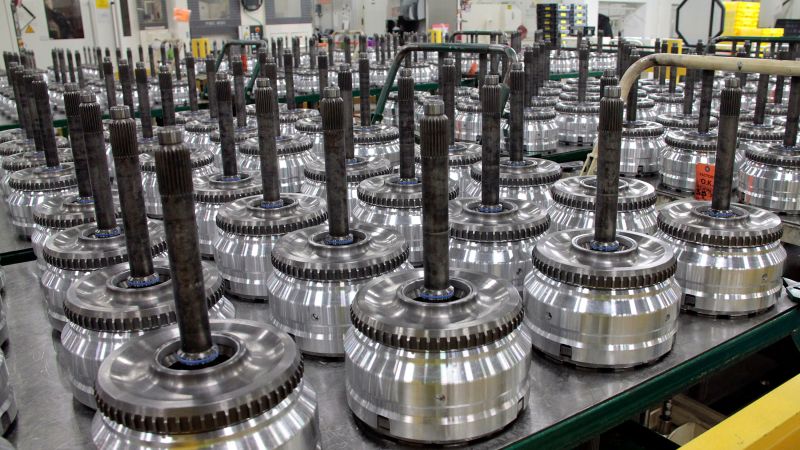
A lot of US autoworkers like the idea of auto tariffs. But some are being laid off as a result
CNN
The United Auto Workers union, and many of its members, have publicly agreed with President Donald Trump’s decision to slap 25% tariffs on all imported cars. But about 900 UAW members will start paying the price for those tariffs starting Monday.
The United Auto Workers union, and many of its members, have publicly agreed with President Donald Trump’s decision to slap 25% tariffs on all imported cars. But about 900 UAW members will start paying the price for those tariffs starting Monday. That’s how many hourly workers at five US Stellantis plants will be laid off for two or three weeks because their jobs producing powertrains and stampings for plants in Canada and Mexico have been temporarily idled due to the tariffs. The layoffs could be a sign of things to come. Since the North American Free Trade Agreement (NAFTA) went into effect 31 years ago, the auto industry has operated as if the US borders with Canada and Mexico did not exist. Components moved freely and frequently between the three countries as they assembled cars, as automakers built millions of vehicles destined for US dealerships at Mexican and Canadian plants. But those assembly plants north and south of the border were often supplied by American factories. Shutting production at those plants will mean the plants that produce those parts are also at risk. Three of the Stellantis plants starting layoffs are in Kokomo, Indiana, an island of auto factories amidst a sea of farm fields in the northern part of the state. There are no cars assembled in Kokomo, but there about 5,000 workers building transmissions and engines there, supplying auto plants to all three countries.

If paying $1,000 for a new iPhone already sounded expensive, consumers should brace for even greater sticker shock later this year. President Donald Trump’s tariffs on foreign goods – specifically those sourced from China – are expected to heighten the prices of everyday tech products, from iPhones to laptops, cars and even smaller gadgets like headphones and computer mice.

The US stock market, fresh off its third-best day in modern history, is sinking back into reality: Although President Donald Trump paused most of his “reciprocal” tariffs, his other massive import taxes have already inflicted significant damage, and the economy won’t easily recover from the fallout.

The US stock market, fresh off its third-best day in modern history, is sinking back into reality: Although President Donald Trump paused most of his “reciprocal” tariffs, his other massive import taxes have already inflicted significant damage, and the economy won’t easily recover from the fallout.





















 Run 3 Space | Play Space Running Game
Run 3 Space | Play Space Running Game Traffic Jam 3D | Online Racing Game
Traffic Jam 3D | Online Racing Game Duck Hunt | Play Old Classic Game
Duck Hunt | Play Old Classic Game








